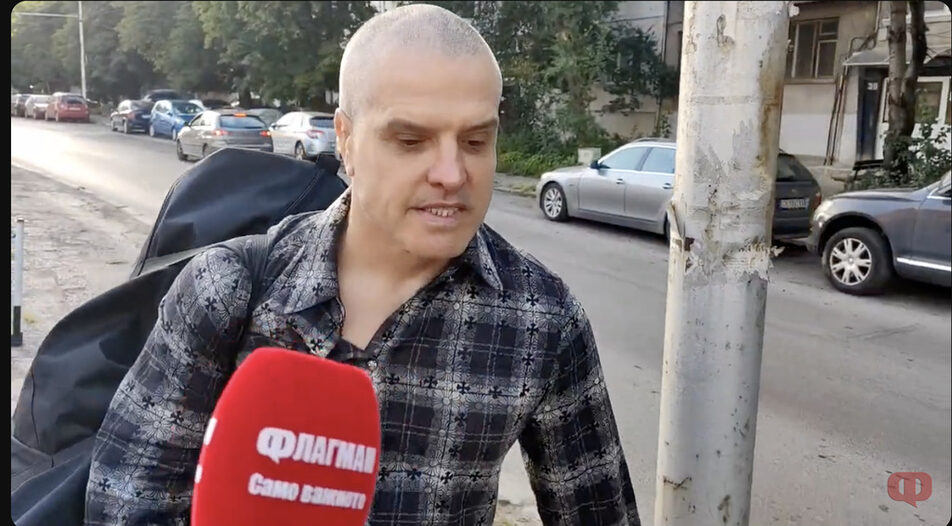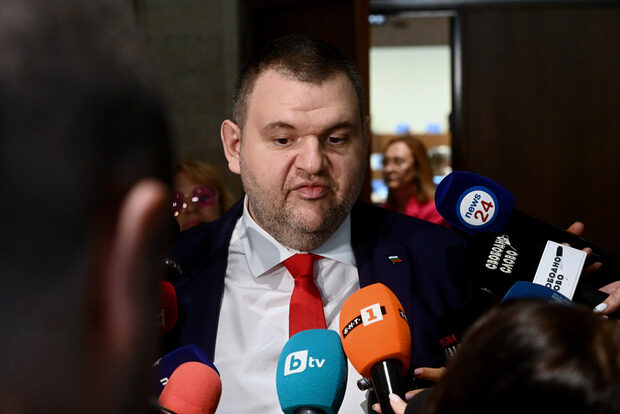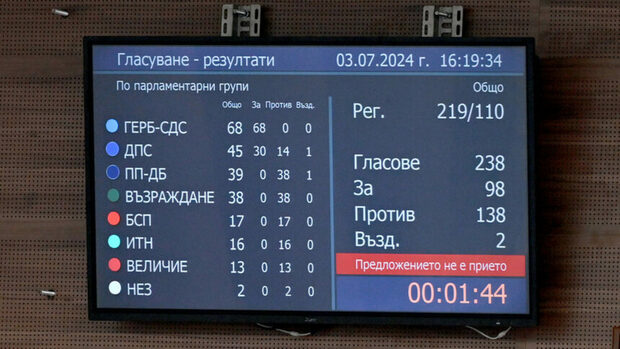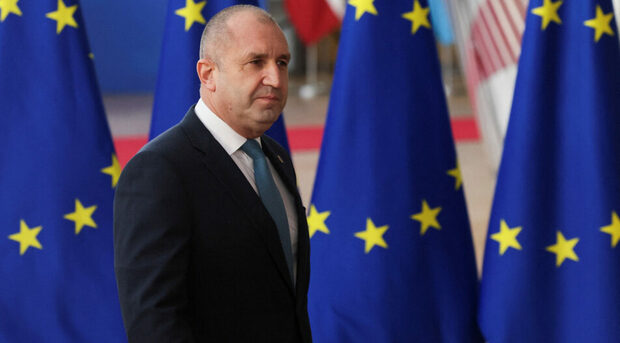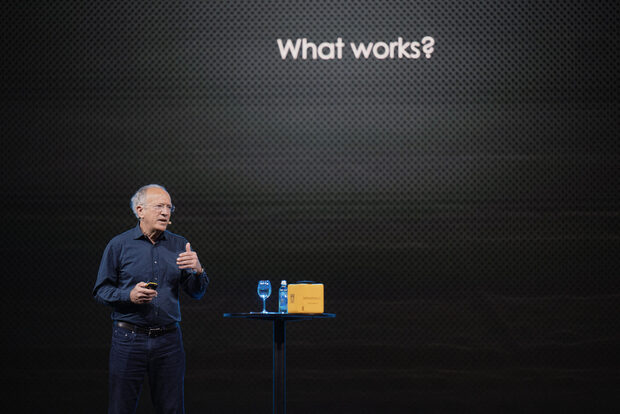Evelyn Banev, widely known for his nickname Brendo, has always been a magnet for all kinds of legends and conspiracies. The image of the 59-year-old former wrestler from Topolovgrad is very different to most other thugs who sprang up in the 1990s. An intelligent international drug trafficker who bought cocaine directly from South American cartels and supplied it to all of Catalonia and the ndrangheta in Italy, Brendo could be spotted a dozen years ago walking unguarded with an iPhone in hand outside the Les Fleurs hotel on Vitoshka boulevard in Sofia. Or around the Oasis complex on the southern Black Sea coast.
He was then convicted of various crimes, all related to drug trafficking, in Romania (receiving a 10.5 year term) and Italy (20 years). Separately, Banev was the cause of the trial of the Swiss bank Credit Suisse, which was accused of allowing the laundering of money generated by drug trafficking. Banev was not indicted in that case simply because the Swiss authorities decided they could no longer wait for their Bulgarian counterparts to find him.
In 2018, Bulgaria's Supreme Court of Cassation finally put an end to the money laundering investigation against Brendo, which had begun more than a decade earlier, by handing down a six-year sentence. It can be safely assumed that the sentence was more a consequence of the previous two handed abroad than the diligence of the country's magistrates.
By then, however, Brendo was nowhere to be found. He turned up in Ukraine a few months before Putin launched his full-scale invasion. Banev was arrested by police there and charged with running a modest marijuana lab. Along the way, it was revealed that Banev had a Ukrainian passport and had previously tried to get a Turkish one. Over the years, Brendo had used the stolen identity of a Bulgarian who had died in Morocco in 1976. He also had Venezuelan citizenship, which gave him access to an identity document and driver's license from the South American country.
Bearing in mind his colorful past, Banev's decision to turn himself in gave rise to a bunch of conspiracies. There was even some conjecture that he had a potential role in pressuring politicians to whom he was linked to form a new cabinet. However, the likely explanation is much more prosaic.
No surprises here
Brendo's appearance with a lawyer at the portal of Sofia Central Prison on Monday caused a stir in the boring news stream. In fact, only the authorities and the public were caught on the hop. A lawyer, who requested anonymity, said inmates had been expecting Banev to surrender for at least a month. And for the past two years, his lawyers have been trying to initiate so-called cumulative proceedings in court, in which his three sentences would be merged and he would be able to serve them in Bulgaria. This is the most likely reason for his surrender last week. Penal experts consulted by Capital weekly said Banev would likely receive a total sentence reduced to just 15 years. It will all depend on the court hearing his application and how EU law will be applied and the sentences of the courts in Italy and Romania interpreted.
Banev's decision to surrender closes an important chapter in a life marked by extensive criminal activity, including international drug trafficking and large-scale money laundering. But for a long time public interest had centered not on Brendo, but on those who had allowed him to disappear and reappear over the course of so many years. One example - this week, the Interior Ministry said it would check how Brendo entered Bulgaria. The same Interior Ministry that failed to find out eight years ago how he had got out of the country. But there are still more examples.
Who is Evelin Banev?
Banev is from the inner circle of another famous smuggler - Ivan "the Doctor" Todorov, shot in 2006 after several unsuccessful attempts. The two had been accomplices since the mid-1990s and were involved in smuggling goods, but came into conflict about a year before that.
The rift coincided with the Spanish police's Operation Portimar, which was carried out in February 2005. 18 people were arrested. Eight of them were Bulgarians, including the leader, Ivaylo Hesselblatt. The police seized over 620 kg of cocaine, weapons and over 700,000 euros. According to investigators, the Bulgarian criminal group broken up through Operation Portimar was among the biggest cocaine traffickers in Catalonia. Specifically, one of the arrested dealers managed to sell 14 kg of cocaine in just one day. The group took the drug from different towns in the province of Cadiz. In order to reach Barcelona, the cocaine was hidden in car caches. These were mostly driven by Spanish professional drivers, who had no problem covering the distance from Manilva to Barcelona and back (a total of about 2,200 km) in less than two days.
Money laundering
It was the 2005 operation that led to the unraveling of the money laundering scheme that is at the heart of similar such cases in Switzerland and Bulgaria.
In 2002, Konstantin Dishliev and Evelin Banev (both married to sisters Monica and Desislava Dobrinovi) built a scheme of offshore companies. This was enabled through the services of two well-known lawyers - Ivo "The Pharaoh" Nedyalkov (convicted in 2011 of embezzlement), and the firm of Stoyan Mavrodiev (later chairman of the Financial Supervisory Commission and the Bulgarian Development Bank) United Consulting. According to the Swiss investigation, this was the tip of a network of over 200 companies in offshore jurisdictions and in Bulgaria. Ultimately, the money was invested in real estate developments in Bulgaria and Switzerland.
According to the court in Sofia, the seamless deposit of such large sums of cash was possible because the two banks most often used by the group, the Austrian Euram and the Swiss Credit Suisse, employed bankers of Bulgarian origin known to them. One of the reasons for the delay in the investigation in Switzerland was outright sabotage on the part of the Bulgarian authorities. The trial showed that Brendo regularly received information about this investigation from the Bulgarian authorities, who sent queries to their Swiss counterparts and then provided them to him.
Links to the Italian Mafia
And if Brendo seemed to have sorted out his problems, in 2012 another trouble befell him. He was arrested near Sozopol following another investigation cocaine trafficking that had began six years earlier in Italy. The operation, known as Magna Carta, was investigating evidence that Brendo had contacted representatives of the ndrangheta in northern Italy and organized the logistics of cocaine trafficking from South America to Western Europe. However, this investigation was severely hampered in 2008 when there was a leak of information following a coordination meeting of investigative teams in Eurojust involving Bulgarian prosecutors. A conversation between Brendo's close associates Tinko Garev and Fabio Catalan was intercepted, in which the Bulgarian warned of the imminent raid on two yachts in the Canary Islands laden with cocaine and reportedly said he had important documents relating to the investigation.
"Banev is also a figure of great importance in Italy. He is a figure who held the fate of the Bulgarian state in his hands, now less so," Roberto Saviano, an Italian investigative journalist with a death sentence from the Mafia, said at the time.
In 2014. Brendo received a 20-year sentence in the Italian case after some of his accomplices testified against him.But his problems don't end there. He is also facing trial in Romania after he sold 50 kilos of cocaine in Athens. The buyer in question turned out to be an undercover agent.
Connections and murders
From information Swiss investigators received from their counterparts in Italy, Austria and Germany, they concluded that Brendo had contacts at a very high level in the Bulgarian government. Proof of the latter, the authorities point out, is the fact that although he was convicted in Italy and Romania, he is not serving his sentences.
In 2005, Brendo's brother-in-law Konstantin Dishliev was shot dead in Sofia. Swiss prosecutors put his murder on a long list of violent cases linked to the group. Along with them are also the shootings of Ivan Todorov-Doctora in 2006 (according to the prosecution, Brendo's partner in the drug trade in Italy), the SIC-linked Ivo Markov-Sidjima, shot in May 2006 in Sofia. And then there was Konstantin Dishliev's mother, shot dead in April 2007, shortly before she was due to testify before a judge against Brendo.
To top it all off, the Bulgarian state has never been able to seize the assets of Banev and his group, despite ample evidence in the cases against him of how he controls his plunder. In 2018, the Commission for Illegally Acquired Assets and Anti-Corruption filed a lawsuit against Banev for a modest 20 million leva, most of which is for virtual rather than real property. However, this process never reached a final decision.
Evelyn Banev, widely known for his nickname Brendo, has always been a magnet for all kinds of legends and conspiracies. The image of the 59-year-old former wrestler from Topolovgrad is very different to most other thugs who sprang up in the 1990s. An intelligent international drug trafficker who bought cocaine directly from South American cartels and supplied it to all of Catalonia and the ndrangheta in Italy, Brendo could be spotted a dozen years ago walking unguarded with an iPhone in hand outside the Les Fleurs hotel on Vitoshka boulevard in Sofia. Or around the Oasis complex on the southern Black Sea coast.
He was then convicted of various crimes, all related to drug trafficking, in Romania (receiving a 10.5 year term) and Italy (20 years). Separately, Banev was the cause of the trial of the Swiss bank Credit Suisse, which was accused of allowing the laundering of money generated by drug trafficking. Banev was not indicted in that case simply because the Swiss authorities decided they could no longer wait for their Bulgarian counterparts to find him.








